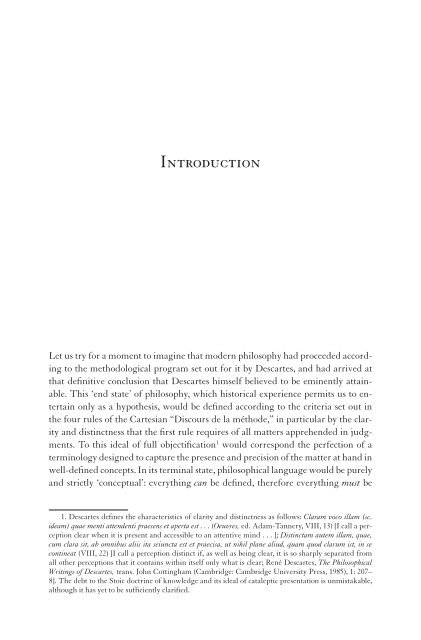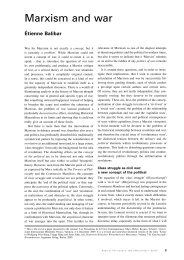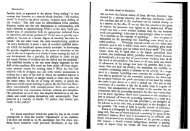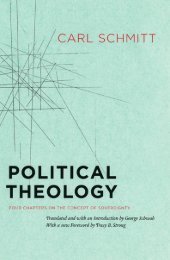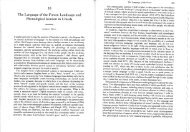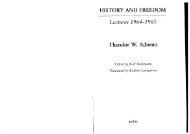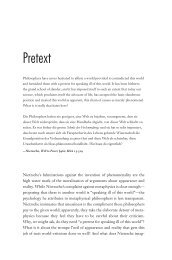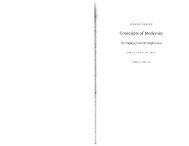Paradigms for a metaphorology.pdf - Townsend Humanities Lab
Paradigms for a metaphorology.pdf - Townsend Humanities Lab
Paradigms for a metaphorology.pdf - Townsend Humanities Lab
You also want an ePaper? Increase the reach of your titles
YUMPU automatically turns print PDFs into web optimized ePapers that Google loves.
Introduction<br />
Let us try <strong>for</strong> a moment to imagine that modern philosophy had proceeded according<br />
to the methodological program set out <strong>for</strong> it by Descartes, and had arrived at<br />
that definitive conclusion that Descartes himself believed to be eminently attainable.<br />
This ‘end state’ of philosophy, which historical experience permits us to entertain<br />
only as a hypothesis, would be defined according to the criteria set out in<br />
the four rules of the Cartesian “Discours de la méthode,” in particular by the clarity<br />
and distinctness that the first rule requires of all matters apprehended in judgments.<br />
To this ideal of full objectification 1 would correspond the perfection of a<br />
terminology designed to capture the presence and precision of the matter at hand in<br />
well-defined concepts. In its terminal state, philosophical language would be purely<br />
and strictly ‘conceptual’: everything can be defined, there<strong>for</strong>e everything must be<br />
1. Descartes defines the characteristics of clarity and distinctness as follows: Claram voco illam (sc.<br />
ideam) quae menti attendenti praesens et aperta est . . . (Oeuvres, ed. Adam-Tannery, VIII, 13) [I call a perception<br />
clear when it is present and accessible to an attentive mind . . . ]; Distinctam autem illam, quae,<br />
cum clara sit, ab omnibus aliis ita seiuncta est et praecisa, ut nihil plane aliud, quam quod clarum ist, in se<br />
contineat (VIII, 22) [I call a perception distinct if, as well as being clear, it is so sharply separated from<br />
all other perceptions that it contains within itself only what is clear; René Descartes, The Philosophical<br />
Writings of Descartes, trans. John Cottingham (Cambridge: Cambridge University Press, 1985), 1: 207–<br />
8]. The debt to the Stoic doctrine of knowledge and its ideal of cataleptic presentation is unmistakable,<br />
although it has yet to be sufficiently clarified.


